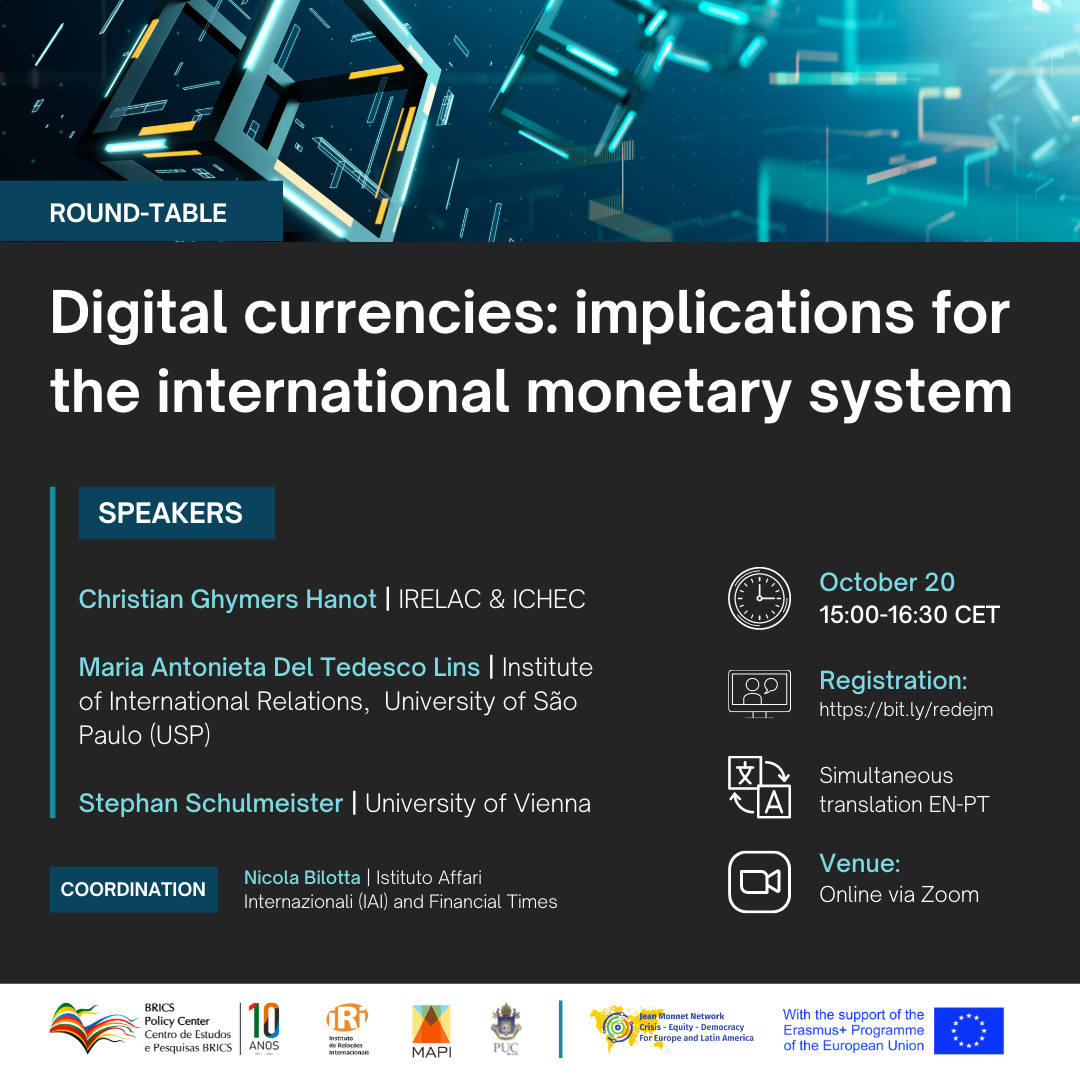The value of global cashless payments has been radically increasing worldwide. Despite cash being the most used payment instrument in the world, technological innovation and new consumer preferences are decisively transforming the way consumers pay and manage money. In this context of vibrant transformations, digital currencies are gaining momentum. Eighty-one countries, representing over 90% of the global GDP, are exploring the issuance of a Central Bank Digital Currency (CBDC). This number is up from only thirty-five in May 2020. Facebook’s stablecoin project, formerly known as Libra and now renamed Diem, might see the light of day soon. In the meantime, El Salvador has adopted Bitcoins as legal tender.
Digital currency is a type of currency that has no physical configuration and only exist in digital form. This broad definition comprises new types of money which radically differ in terms of accessibility, issuer, form and technology. Digital currencies could produce major changes in our economy and society and they could produce several implications in the international monetary system. The aim of this webinar is to set the ground to better understand what digital currencies are and which could be key implications they could produce.
15:00 European Time (CET)
10:00 Rio de Janeiro (BRT)
This event is part of the Jean Monnet Network project. There will be simultaneous translation English / Portuguese.


